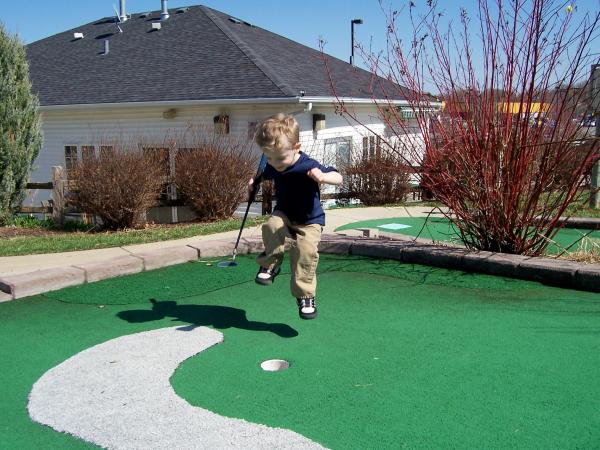
Parents face the danger of being caught in the intensity web even in individual sports such as golf and tennis. The problem is not so much being on the sidelines during competition but the way they interact with their child leading up to the beginning of a major tournament.
The danger of the intensity web is that it can lead to tunnel vision where the parent loses perspective about what is important and how to help their child develop into the golfer that they can be. Tunnel vision is where the parent loses their ability to see the whole picture of their child's youth sport development. Instead of paying attention to many different skills necessary to excel, the parent becomes so narrowly focused on their own authority that the child feels suffocated as they try to develop their own style of play.
Tunnel vision often causes the parent to take a difficult situation personally and believe they have to respond forcefully to defend their personal or family honor. Tunnel vision is so dangerous because it limits a person's range of options and makes the parent blind to the rest of the options. Often times under extreme pressure, a parent will respond with violent or at least verbally abusive behavior. A parent loses the ability to think clearly and often will take action that he or she would not normally think of doing.
Tunnel Vision in Youth Golf
The big tournament is a week away. The Junior World Championship is the tournament that Gloria has been preparing for the whole year. The dad/daughter relationship is already strained because Dad sees himself as the coach even though Gloria takes lessons from a golf pro. Dad is a mediocre golfer, but sees that his daughter could be very skilled, and her success would be very gratifying to him.
As the tournament gets closer, Dad pushes for more and longer practice sessions. The anxiety levels start to rise to new heights as Dad drives for perfection prior to the tournament. Gloria is feeling the undue pressure even though the tournament is still far away in her mind.
Dad intensifies the negative environment, scolding his daughter for making errors. Whether it's technical, mental, or plain behavioral errors, he gets angry because he knows that she will not win unless she is “perfect.” Gloria begins to feel more pressure and intensity building, not just at the golf course but at home. Golf becomes the focus of every conversation at home. Dad is obsessed with his daughter and her golf performance being “perfect.” He never talks about school, the news, movies or her friends. Everything is focused on the “perfect” golf game.








